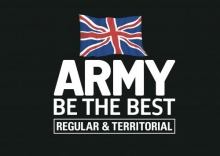A report from 2004: This publication seeks to better understand the realities facing boys and girls who “volunteer” for participation in armed conflict, highlighting personal, socio-economic and political factors that motivate their decisions to...
Countering the Militarisation of Youth is a project of War Resisters' International | 2017 | All content of this site is licenced under a Creative Commons Attribution-NonCommercial-ShareAlike 2.0 UK: England & Wales License, unless otherwise stated.
Website development by Netuxo Ltd




 In July,
In July, 



